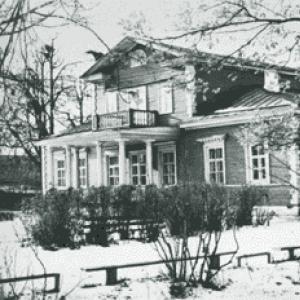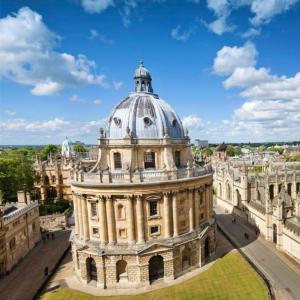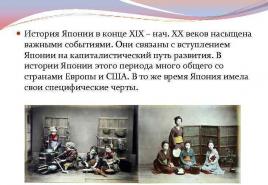Topic in English education in the UK. Higher Education System in United Kingdom
England Is One Of The Top Countries Which Offer Excellent Education. English Educational System Is Quite Different from The System in Many Other Countries. IT IS Class-Divided Into State and Private Schools. For Children Aged Between 5 and 17 Full-Time Education Is Compulsory. PRIMARY EDUCATION STARTS AT THE AGE OF 5. BEFORE THAT CHILDREN MAY ATTEND A NURSERY SCHOOL. Secondary Education Starts At The Age of 11 And Continues Up to 18. After That Children Receive Tertiary Education. Almost 93% of English Children Attend State-Funded Schools, Which Are Without Charge. ONLY Some Activities Such As Theater Visits OR Field Trips May Require Voluntary Payment. All State Schools in England Are Divided Into Six Categories:
- Community Schools, In Which The Local Authority is Responsible for School Staff and Admissions.
- Free Schools Are Newly Established Institutions in England, Which Are Set Up Parents, Businesses, Charities. These Schools Are Free to Attend and Funded Mainly by Tax-Payers.
- Academy Schools Have Recently Replaced Poorly-Performing Community Schools in Economicly Challenged Areas. They Are Monitored by The Department for Education.
- Foundation Schools Are Institutions in Which The Governing Body or a Charitable Foundation Is Responsible for the Admissions and Staff.
- Voluntary Aided Schools Can Be Linked To Various Organizations, Such As Churches, Trade Associations, etc. THEY CAN BE FAITH SCHOOLS OR NON DENOMINATIONAL SCHOOLS.
- Voluntary Controlled Schools Are Almost Always Linked to the Church. While Their Lands and Buildings Are Owned by Charitable Foundations, The Local Authority IS Responsible for the Staff and Admissions.
Some English Children Attend Private or Independent Schools, Which Require Additional Fee. Children with Particular Skills Are Sometimes Offered Scholarships for Studying In Such Schools. Private Schools Do Not Follow The National Curriculum. Both Private and State-Funded Schools Hold GCSE (General Certificate of Secondary Education) Examinations for Children Aged 14-16. IT's A Group of Tests Taken in a Number of Subsequent Subjects. From Age 18 Children Normally Enter University to Receive An Academic Degree.
The Typical First Degree Offered in British Universities Is The Bachelor's Degree, Which Usally Takes Three Years. There Are Universities Which Offer A Master's Degree As Well. Such Education Usually Lasts for Four Years. British Universities Have A Certain Hierarchy. The Most Prestigious Universities in The Country Are Oxford and Cambridge. THEY ARE ALSO WORLD-FAMOUS. Although The State Doesn't Control The Syllabuses of Higher Education Institutions, It Does Influence Admission Procedures. Undergraduates, Whow Have Already Completed A First Degree Education, May Continue Studying in PostgraduTe to Achieve a Master's Degree or a doctorate.
Education in England
England is a list of the best countries offering excellent education. The English educational system is quite different from the system in many other countries. It is classically divided into public and private schools. For children aged 5 to 17 years, full-time learning is mandatory. Primary education begins at the age of 5. Before that, children can attend kindergartens. Secondary education begins at the age of 11 and lasts up to 18 years. After that, children receive higher education. Almost 93% of English children attend schools financed by the state that are free. Only for certain activities, such as visiting theater or hiking, voluntary contributions may be required. All public schools in England are divided into six categories:
1. Public schools in which local authorities are responsible for workers and students.
2. Schools of free education, newly created institutions in England, which formed thanks to parents, business institutions, charitable organizations. These schools can be free to visit, and they are funded mainly by taxpayers.
3. Academic education schools - recently created replacement of public schools, poorly cope with their responsibilities, in economically needy areas. They are controlled by the Department of Education.
4. Schools funded by the Foundation in which the governing body or charitable fund is responsible for personnel and students.
5. Voluntary Assistance Schools may be associated with various organizations, such as church, trade associations, etc. These can be religious or non-confessional schools.
6. Schools controlled by volunteer organizations are almost always associated with the church. While their land and buildings belong to charitable funds, local authorities are responsible for employees and students.
Some English children attend private or independent schools that require an additional fee. Children with special talents are sometimes offered scholarships for training in such schools. Private schools do not obey the national program. Both private and public educational institutions are carried out by graduation exam GCSE (general certificate of secondary education) for children aged 14-16 years. This is a group of tests conducted in several specific subjects. After 18 years, children usually go to the university to get a degree.
Usually, British universities offer as the first education a bachelor's degree, which takes about three years. There are also universities offering a master's degree. This formation usually lasts for four years. British universities have a specific hierarchy. The most prestigious universities in the country are Oxford and Cambridge. They are also world famous. Although the state does not control the training programs of higher educational institutions, it has a certain impact on the process of admission. Students who have already received the first degree can continue their studies in graduate school to obtain a master's degree or doctor.
which will help you to figure out the difficult system of British educational institutions.
British Topic Education in the UK (Education in Great Britain) - Very interesting topic, because it allows you to compare the education system of the British with others.
Which will also help to form an idea of \u200b\u200bwhat and where your British interlocutor studies, and what exams he will have to take.
British Topic Education in the UKEducation in Great Britain) tells not only about schools, but also about the well-known higher educational institutions of Great Britain, as well as on what types universities are divided in the UK.
Text -----
Education in Great Britain
Education in Great Britain Is Compulsory and Free for Children from 5 to 16 Years Old. Some Children Attend Kindergartens from the Age of 3. However, IT "S Not Compulsory. In Kindergartens, Children Learn Very Simple Things Like Colors, Numbers and Letters. They Also Play Games and Sleep After Lunch. There Is Always Someone Keeping An Eye ON Children, No Matter What They Do.
Compulsory Education Lasts 6 Years; IT Begins AT The Age of 5 When Children Go to Primary School. There Are Two Periods: Pupils from 5 to 7 Years Old Attend Infant Schools and Pupils from 7 to 11 Years Old Attend Junior Schools.
The Classes In Infant Schools Usally Consist of Playing Games and Getting Acquainted with Teachers, Classrooms and Desks.
WHEN CHILDREN ARE 7 YEARS OLD, THE REAL STUDYING BEGINS. Pupils Don "T Play Very Much, They Classes Where They Sit At Desks, Write, Read And Answer The Questions.
Compulsory Secondary Education Consists of 5 Forms and Lasts 5 Years. IT Begins WHEN CHILDREN ARE 11 OR 12 YEARS OLD. Children Study History, Russian, Art, Mathematics, Geography, Music, Science and Foreign Languages. There Are Also Lessons of Physical Training and Religion. At the age of 7, 11 and 14 Pupils Take Examinations in The Core Subjects - Mathematics, English and Science.
There Are 3 Types of State Secondary Schools in Great Britain: Comprehensive Schools, Grammar Schools and Modern Schools.
Complensive Schools Take Pupils without Exams. Children Are Divided Into Humanitarian or Technical Groups According to their abilities.
Grammar Schools Give Secondary Education Of A Very High Standard. AT The Age of 11 Children Pass Tests to Enter a Grammar School.
Modern Schools Don "T Prepare Pupils for Universities, But for Practical Jobs.
AT THE AGE OF 16, PUPILS TAKE THE General Certificate of Secondary Education Examination. The Subjects for The Exams Are Chosen by The Pupil In The Third or in the Forth Form.
After Gcse Pupils Have a Choice: Either Go to a Further Education College or Continue Their Education in The Sixth Form Those Who Stay at School, Study for 2 More Years for Advanced Level Exams in Two Or Three Subjects. IT IS NECESSARY TO GET A PLACE AT One of British Universities.
There Are Also About 500 Private Schools in Great Britain, They Are Very Expensive and Only 5% of SchoolChildren Attend These Schools. The Most Famous British Public Schools Are Harrow, Eton and Winchester.
After Leaving Secondary School Young People Apply To A College, University or a Polytechnic.
The Universities of Great Britain Are Divided Into 5 Types:
- The Old Ones (Founded Before 19th Century, E.G. Oxford, Cambridge);
- The Red Brick (Founded in the 19th or 20th Century);
- THE PLATE GLASS (Founded in 1960s);
- The Open University (Students Learn Subjects and Do Exercises At Home, Then Send Their Works To their Tutors for Checking);
- The New Universities (Former Polytechnic Academies and Colleges).
The University of Oxford, London Imperial College, London School of Economics and London University College Are Considered The Best Universities.
UniversiTies Select Students Basing On Their Interviews and A-Level Results.
Students Graduate From Universities with the Degree of A Bachelor of Arts, Science or Engineering After Three Studying for Three Years. Aftert That Some Students Continue Their Studies For a Master "S Degree and Then a Doctor" S Degree (PhD).

----- Translation -----
Education in United Kingdom
Education here is mandatory and free for children from 5 to 16 years. Some children from 3 years go to kindergarten. However, it is not necessary. In kindergartens, children will know the simplest things, such as colors, numbers and letters. In addition, they play and sleep after lunch. For children, someone always looks after they would not be busy.
Mandatory education lasts 6 years, it begins with 5 years, when children go to primary school. It is divided into 2 periods: children from 5 to 7 years old attend school for babies, and children from 7 to 11 years old go to primary school.
Lessons in the younger school consist of games and dating with teachers, classes and parties.
When the children turn on 7 years, this study begins. Pupils do not play a lot, and answer questions
Mandatory secondary education consists of 5 classes and lasts 5 years. It begins when children are 11 or 12 years old. Children study history, English, visual art, mathematics, geography, music, natural science and foreign languages. There are also classes in physical culture and religion. At the age of 7, 11 and 14, schoolchildren take exams on the main subjects - mathematics, English and natural science.
There are 3 types of public schools of secondary education: general education schools, grammatical schools and modern schools.
Secondary schools are accepted by students without entrance exams. In such schools, children are usually distributed to humanitarian and technical groups depending on the ownership of those or other skills.
Grammar schools give the secondary formation of a very high level. For admission to such school, you must pass a written exam at the age of 11.
Modern schools are preparing children not to enter the university, but to work specialties.
At the age of 16, students take an exam for obtaining a certificate of high school. It is chosen in the 3rd or 4th grade items.
After this exam, students have a choice: continue further training in college, or go to the 6th grade. Those who remain at school are learn for another 2 years, after which they pass the exams of the level "A" on two or three subjects. This is necessary for admission to one of the British universities.
In the UK, there are also about 500 private schools, training in them is very expensive, so they are visited only by 5% of schoolchildren. The most famous private schools of Great Britain: Harrow, Yaton and Winchester.
After the student graduated from school, he can apply to College, University or Technical School.
British universities are divided into 5 types:
- ancient (based until the 19th century, such as Oxford and Cambridge);
- "Red Brick" (based in 19 or 20th century);
- "Glass" (founded in the 1960s);
- Open University (students study the items and perform at home exercises, then send ready-made tasks to check for testing);
- New (former polytechnic academies and colleges).
Cambridge, Oxford, Imperial College of London, London School of Economics and University College London are considered to be the best universities.
Getting a place at the university depends on the results of interviewing and the level exams "A".
After three years of study, the student is produced from the university with a bachelor's degree of humanitarian, natural or technical sciences. After that, some students continue to study to get a master's degree, and then doctors of science.

All State Schools in Britain Are Free, And Schools Provide Their Pupils with Books and Equipment for their Studies.
Nine Million Children ATTEND 35.000 Schools in Britain. Education Is Compulsory From 5 Till 16 Years. Parents Can Choose to Send Their Children To a Nursery School or a Pre-School Playgroup to Prepare Them for the Start Of Compulsory Education.
Children Start Primary School At 5 and Continue Until They Are 11. Most Children Are Taught Together, Boys and Girls in the Same Class. AT 11 Most Pupils Go to Secondary Schools Called Comprehensives Which Accept A Wide Range of Children from All Backgrounds and Religious and Ethnic Groups. Ninety Per Cent of Secondary Schools in England, Scotland and Wales Are Co-Educational.
AT 16 Pupils Take A National Exam Called "G.C.S.E." GENERAL CERTIFICATE OF SECONDARY EDUCATION) AND THEN THEY CAN LEAVE SCHOOL IF THEY WISH. This Is The End of Compulsory Education.
Some 16-Year-Olds Continue Their Studies in the Sixth Form at School or At A Sixth Form College. The Sixth Form Prepares Pupils For a National Exam Called "A" LEVEL (Advanced Level) AT IS. Yon-Need "A" Level to Enter a University.
Other 16-Year-Olds Choose to Go To A College of Further Education to Study for More Practical (Vocation) Diplomas Relating to the World of Work, such as Hairdressing, Typing or Mechanics.
Universities and Colleges of Higher Education Accept Students WITH "A" Levels from 18. Students Study for a Degree Which Takes on Average Three Years of Full-Time Study.
Most Students Graduate At 21 Or 22 And Are Given Their Degree At A Special Graduation Ceremony.
Topic translation: education system in the UK. State Education
In all public schools of Britain, training is free. Schools provide students with books and learning equipment.
Nine million children attend 35 thousand schools in Britain. Education is always from five to sixteen years. Parents can send children to Nursery or to a preparatory group to prepare them for compulsory education.
Children begin to go to school at five years old and learn there until eleven years. Most children learn together, boys and girls, in one class. At the age of 11, many students go to high school, called general educational, which is visited by children of various social layers, religious and ethnic groups. In 90% of the secondary schools of England, Scotland and Wales learning joint.
At 16, students take the exam for receiving a certificate of secondary education. And after that they can leave school if they want. This mandatory education ends.
Some sixteen years continue their studies in the sixth school class or six-year-old college. In the sixth grade, students prepare for the state exam, called "A-level" - "advanced level". This exam is surreated in 18 years, it is necessary for admission to the university.
Other sixteen-year-old students go to college to continue education and receive diploma for professional formation, giving the opportunity to work, such as hairdressers, machinists, mechanics.
Universities and colleges of higher education take students from 18 years old, surrendered an advanced level exam. Students learn to receive a scientific degree. Study lasts on average three years in the hospital.
Most students finish universities in 21 or 22 years. They are awarded degrees at the graduate ceremony.
In England and Wales COMPULSORY SCHOOL BEGINS AT THE AGE OF FIVE, BUT BEFORE THAT AGE CHILDREN CAN GO TO A NURSERY SCHOOL, ALSO CALLED PLAY SCHOOL. School Is Compulsory Till The Children Are 16 years old.
In Primary School And First School Children Learn to Read and Write and The Basis of ArithMetic. In the Higher Classes of Primary School (Or in Middle School) Children Learn Geography, History, Religion and In Some Schools, A Foreign Language. THEN CHILDREN GO TO THE SECONDARY SCHOOL.
WHEN STUDENTS ARE 16 YEARS OLD THEY MAY TAKE AN EXAM IN VARIOUS SUBTS IN ORDER TO WORD A QUALIFICATION. These Qualifications CAN BE EITHER G.C.S.E. GENERAL CERTIFICATE OF SECONDARY EDUCATION) OR "O LEVEL" (ORDINARY LEVEL). After That Students Can Either Leave School and Start Working Or Continue Their Studies in the Same School As Before. If They Continue, When Are 18, They Have To Take Further Examinations Which Are Necessary for Getting Into University or College.
Some Parents Choose Private Schools for their Children. They Are Very Expensive But Considered to Provide a Better Education and Good Job OpportUnities.
Incland There Are 47 Universities, Including The Open University Which Teaches Via TV and Radio, About 400 Colleges and Institutes of Higher Education. The Oldest Universities in England Are Oxford and Cambridge. Generally, Universities Award Two Kinds of Degrees: The Bachelor "S Degree and The Master" S Degree.
[ translating to Russian language]
Education in Britain
In England and Wales, compulsory education at school begins in five years, but before that age, children can go to kindergarten, also called a gaming school. Learning at school must be achieved by the age of 16 years.
In the primary school and elementary school, children learn to read and write, as well as the basics of arithmetic. In the senior class of primary school (or in high school), children teach geography, history, religion and, in some schools, a foreign language. After that, children are moving to high school.
When students reaches sixteen years old, they can take exams on various subjects to obtain qualifications. Qualification can be as sample O.S.O. (Basic certificate of secondary education) and ordinary level. After that, students can leave school and get a job or continue their education in the same school. If they continue their studies, when they are 18 years old, they will have to pass the following exams that are necessary for admission to university or college.
Some parents choose private schools for their children. They are very expensive, but it is believed that education is given at a higher level and there are prerequisites for good work.
In England, 47 universities, including an open university, training in television and radio, about 400 colleges and higher educational institutions. The oldest universities in England - Oxford and Cambridge. Mostly, two types of degrees are assigned in universities: bachelor's degrees and master.
Questions:
1. Howl Long Does a Child Stay in Compulsory School?
2. WHEN DOES COMPULSORY SCHOOL BEGIN?
3. What Kind of Exam Do Students Have To Take When the Are 16?
4. What subjects do Children Learn in Primary School?
5. How do Private Schools Differ from the Regular Ones?
6. Do Students Have to Leave School At the Age of 16 Or to Continue their Studies?
7. What Is the Open University?
8. What Kinds of Degrees Do Universities Award?
9. How Many Universities Are there in england?
Look:
bachelor - Bachelor.
compulsory - Mandatory
exam - exam
Master - Master
nURSERY SCHOOL - kindergarten
opportunity - Ability
private - Private
Subject - subject
to award - give, assign
university - University
Education in Britain (6)
The British System of Education Has a Very Long History, But In The Past Few Years There Have Been Many Changes in It. British Education WAS Traditionally Decentralized, But Now The Education Reform Act Has Led to A Compulsory National Curriculum for Pupils Aged Five to Sixteen in State Schools. The act Also Aims to Give Parents a Wider Children. Thus The Right to Express A Preference For a School.
Boys and Girls Are Taught Together In Most Schools. Non-Selective Complensive Education Caters for Children of All Abilities. MOST CHILDREN RECEIVE FREE EDUCATION FINANCED FROM PUBLIC FUNDS. 7% of Children Attend Private Fee-Paying Schools.
Around Half of 3 and 4-year-olds in Britain Receive Nursery Education and Many Children Attend Preschool Play Groups, Mostly Organized by Parents. Compulsory Primary Education Begins At The Age of 5. Children Usually Start Their School Career in An Infant School and Move to a Junior School or Department at Seven. In Some Schools The Move to Middle School At The Age of Eight, Nine or Ten. These Three Stages Form The Primary School, Covering The Following Subjects: English, Maths and Science, History, Geography, Music, Art and Physical Education.
AT SEVEN AND ELEVEN YEARS OLD (AND AT SECONARY SCHOOL AT FOURTEEN AND SIXTEEN) TEACHERS MEASURE CHILDREN "S PROGRESS IN EACH SUBJECT AGAINST Attainment Targets. For Each Target There Are Ten Levels of Attainment.
The Secondary Level Includes The Children from Eleven to Eighteen. Here The Expand The Knowledge of The Have Acquired At Primary School. And According to the National Curriculum They Start to Learn a Modern Foreign Language. AT THE AGE OF (GCSE) Sixteen The Can Get General Certificate of Secondary Education Qualifications on the Basis of Examinations and Course Work.
IF Pupils Are Successful, They Can Continue to More Advanced Education and Training. After A Further 2 Years of Study The General Certificate of Education Advanced Level Exam IS Taken At The Age of 18 and Can Be Combined with the Advanced Supplementary Level Exam to Provide a Wider Range of Subjects. These Exams Are The Main Standard for Entry to University Education and To Many Forms of Professional Training. There Is Also A Certificate Of Pre-Vocational Education for Those Who Stay at School Till Seventeen. This Provides a Preparation for Work on Vocational Courses.
For Those Leaving School AT Sixteen There Are Further Education Colleges. MOST OF THEM ARE Work-Related and Vocational.
The Next Stage Is Higher Education. All British Universities Enjoy Complete Academic Freedom. There Are Seventynine Universities, Oxford and Cambridge Being The Oldest of Them. Over 90% of Students Receive Awards Covering Tuition Fees and Maintenance.
Education in Britain (6)
The British education system has a long history, but over the past few years a lot of changes have happened in it. British education was traditionally decentralized, but now the act of education reform led to the creation of a compulsory national curriculum for students from 5 to 16 years in public schools. The act also sets the goal to give parents a wider choice of schools for their children. Thus, they get the right to prefer any school.
In most schools, boys and girls learn together. Interactive general education is available to children with any abilities. Most children receive free education funded from public funds. 7% of children attend private paid schools.
About half of the 3rd 4-year-old children in the UK receive pre-school education, and many others attend pre-school gaming groups, mainly organized by their parents. Mandatory primary education begins with 5 years. Children usually start studying in a children's school and go to younger school or a branch of 7 years. In some schools, they go to an intermediate school at 8, 9 or 10 years. These three steps form an elementary school in which the following items are taught: English, Mathematics, Natural Sciences, History, Geography, Music, Art and Physical Education.
Achievements of children in 7 and at 11 years old, and in high school at 14 and 16 years are compared with the established goals for each subject. At each stage, these achievements are regarded along ten-tong gradation.
In high school, children are trained from 11 to 18 years. Here they expand the knowledge gained in elementary school. According to the national curriculum, they begin to learn a modern foreign language. At the age of 16, they can receive a general certificate of medium education based on exams and academic work.
If students achieve success, they can move to more advanced education and training. Two years of study, at the age of 18, you can pass an exam for a certificate of an advanced level of an advanced level that can be combined with an additional advanced level exam in order to expand the choice of items. These exams are the main standard for admission to university education and many forms of vocational training. There is also a certificate of prefesting education for those who remain at school under 17 years. It provides preparations for work in professional courses.
For those who leave school at the age of 16, there are colleges of further education. Most of them are professional and related to work.
The next step is a higher education. All British universities enjoy complete academic freedom. There are 79 universities, the oldest of them - Oxford and Cambridge. More than 90% of students receive subsidies covering the training and expenditure fees.







